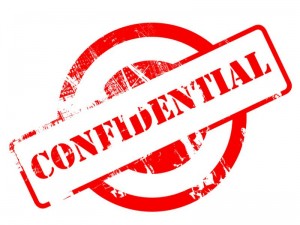 On January 13, 2015, the Louisiana Supreme Court amended Rule 1.6 of the Louisiana Rules of Professional Conduct both to permit more disclosures of client confidential information, and to require more of lawyers to protect such information. See Order of January 13, 2015.
On January 13, 2015, the Louisiana Supreme Court amended Rule 1.6 of the Louisiana Rules of Professional Conduct both to permit more disclosures of client confidential information, and to require more of lawyers to protect such information. See Order of January 13, 2015.
Permissive Disclosures to Detect Conflicts
The court adopted a new paragraph, denominated as Louisiana Rule 1.6(b)(7), permitting a lawyer to disclose confidential information to the extent the lawyer “reasonably believes necessary”:
(7) to detect and resolve conflicts of interest between lawyers in different firms, but only if the revealed information would not compromise the attorney-client privilege or otherwise prejudice the client.
In adopting this amendment, the court made the Louisiana rule similar to the corresponding ABA Model Rule. The ABA adopted similar language because sometimes a lawyer may need to disclose potential conflicts when the lawyer is considering associating with a new firm, or when law firms are considering a merger. See ABA Model Rule 1.6, cmt. 13. In reality, Louisiana lawyers changing or joining firms have long made these disclosures without this express authorization.
Obligation to Prevent Inadvertent Disclosures
The court adopted a new paragraph, denominated as Rule 1.6(c), that provides as follows:
A lawyer shall make reasonable efforts to prevent the inadvertent or unauthorized disclosure of, or unauthorized access to, information relating to the representation of a client.
This is a default rule; a client may demand that a lawyer exercise more—or permit a lawyer to exercise less—than ordinary “reasonable care” of the client’s information. In adopting this amendment, the court made the Louisiana rule identical to the corresponding ABA Model Rule.
A mere inadvertent disclosure does not subject a lawyer to discipline under this rule if the lawyer has exercised reasonable care to protect client information and data. According to the comment to the corresponding ABA model rule, some factors to consider in evaluating the reasonableness of a lawyer’s efforts include:
- The sensitivity and importance of the information disclosed.
- The likelihood of disclosure if more protective measures are not employed.
- The cost and difficulty of employing additional safeguards.
- The extent to which the safeguards “adversely affect the lawyer’s ability to represent clients (e.g., by making a device or important piece of software excessively difficult to use).”
See ABA Model Rule 1.6, cmt. 18.
Although this is a new amendment, the Louisiana Rules have always required a lawyer to be “competent” and to preserve confidential information. To competently preserve confidential information, lawyers presumably have always been required to exercise reasonable care in this regard. Therefore, this rule does not impose a new obligation.
To comply with the obligations imposed by this rule, a lawyer who digitally stores and communicates confidential information generally need not implement über-security measures like encryption or multi-factor authentication. Nor is a lawyer prohibited from using means of communication when the lawyer has a reasonable expectation of privacy, such as when using a public Wi-Fi network for confidential email.
